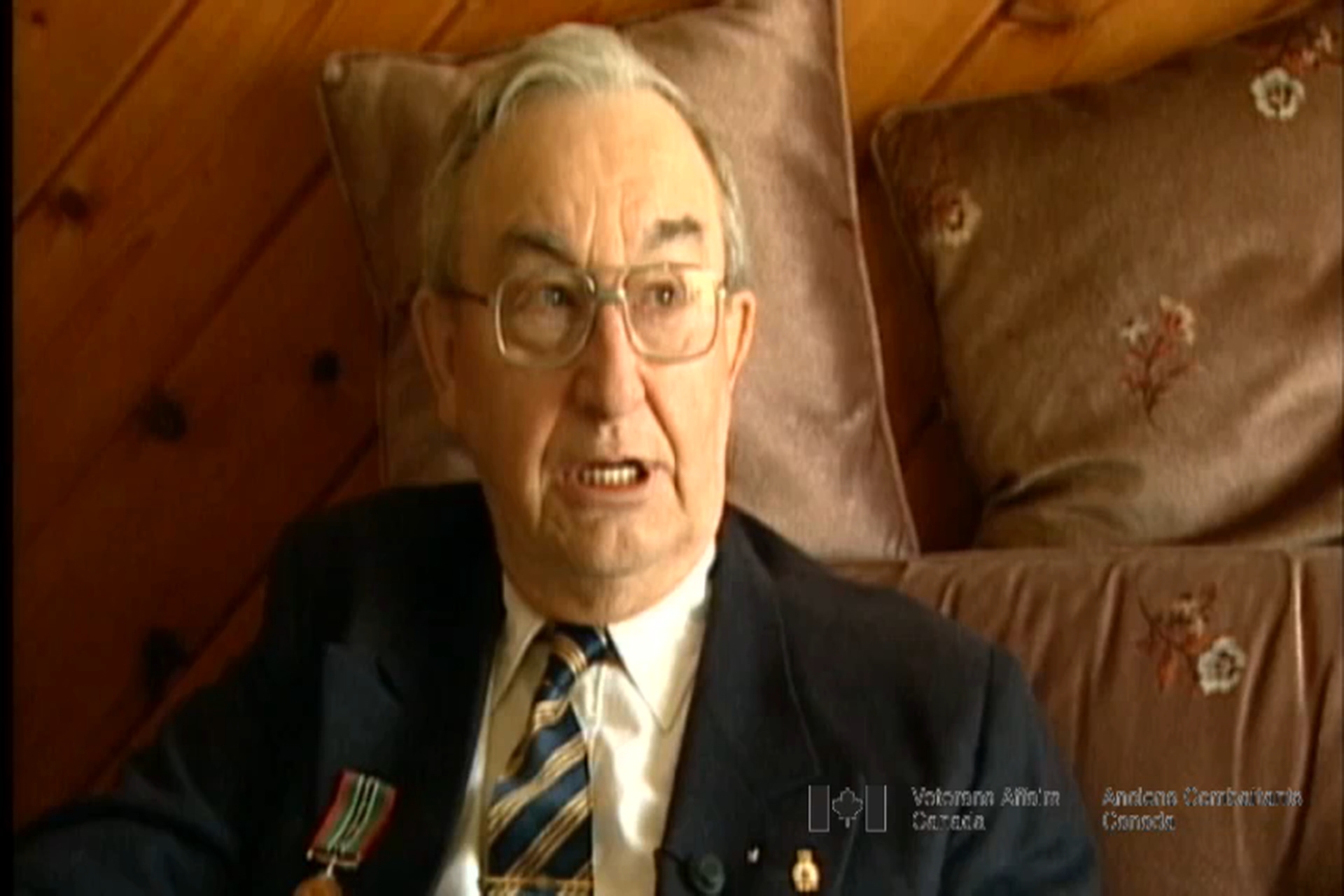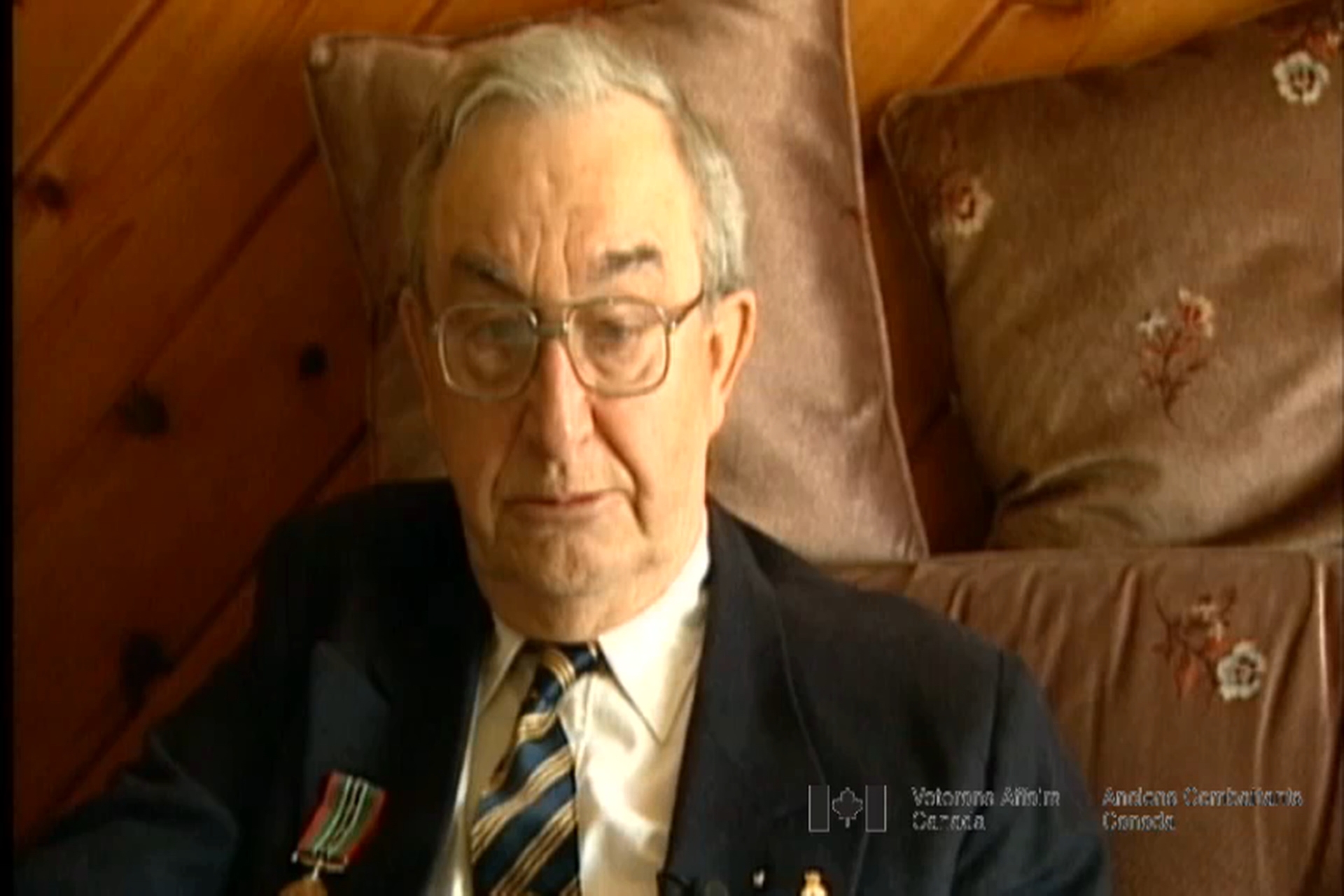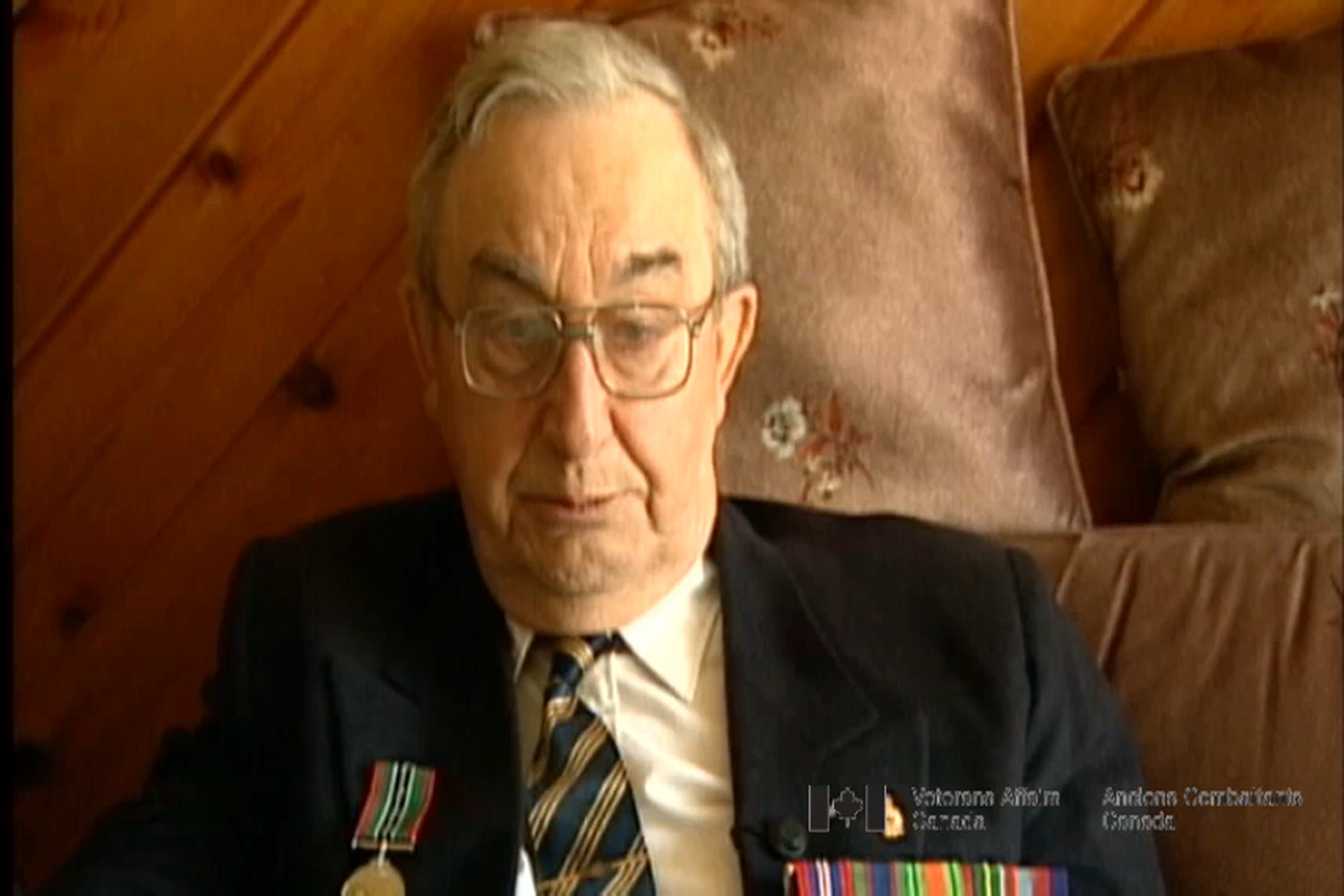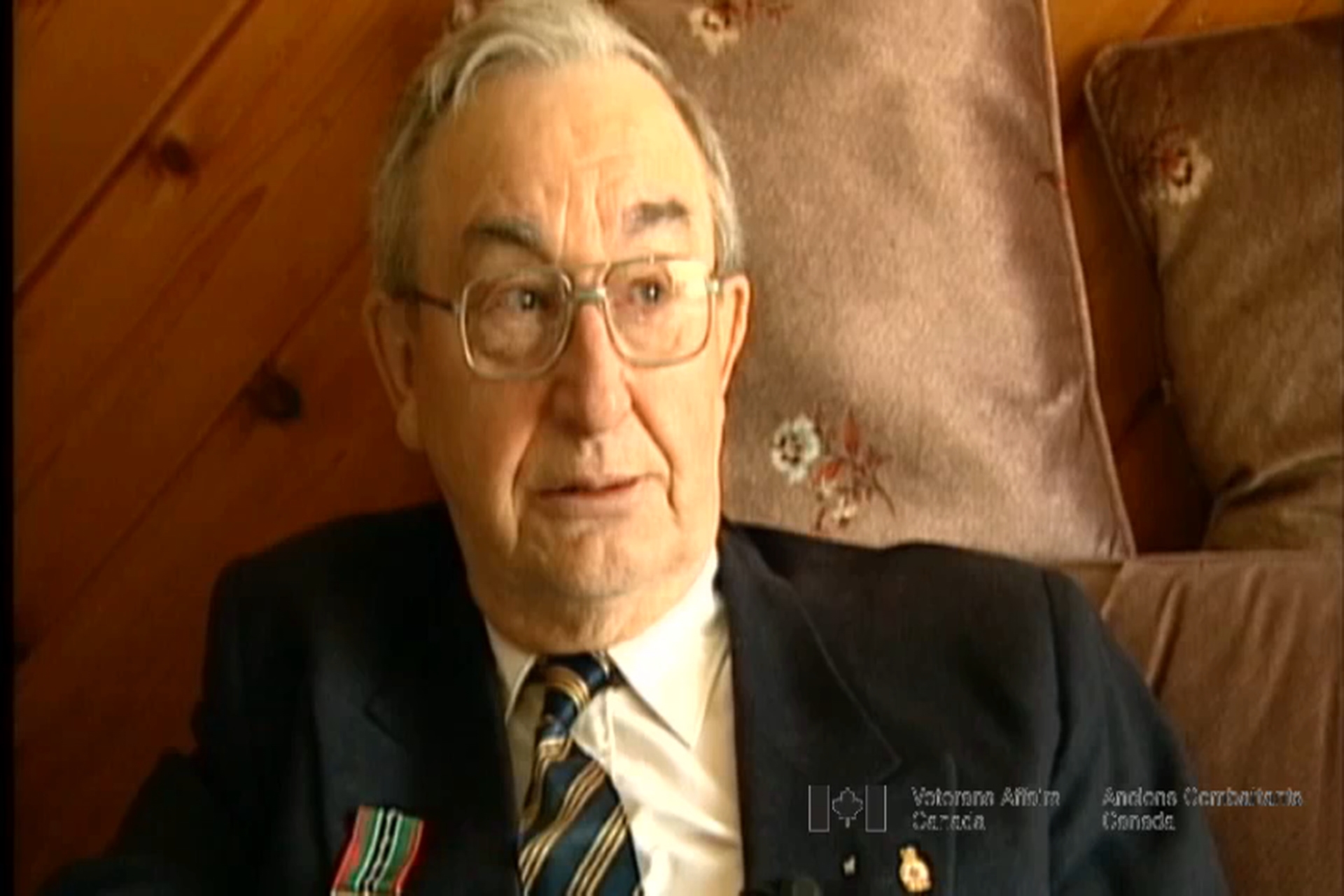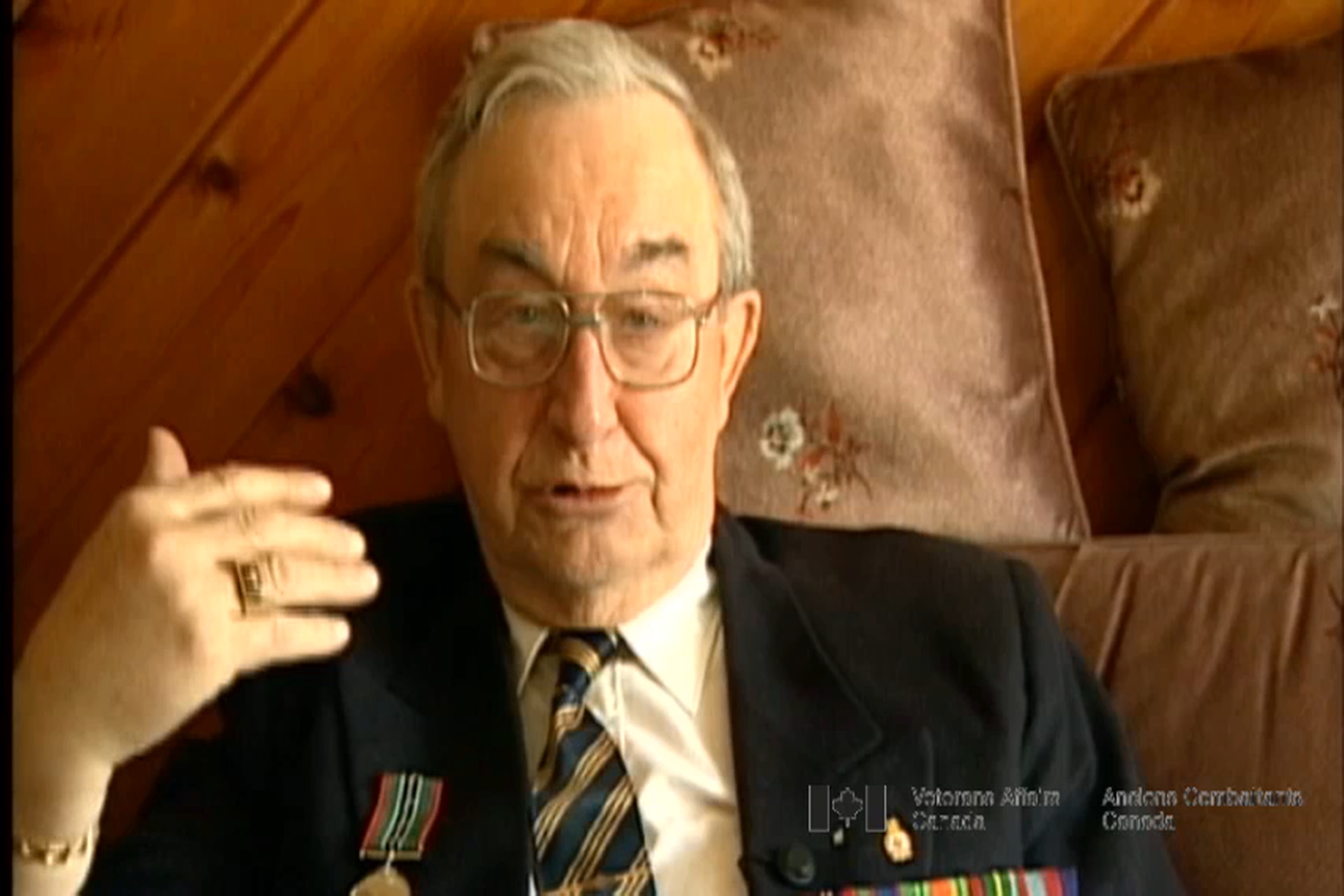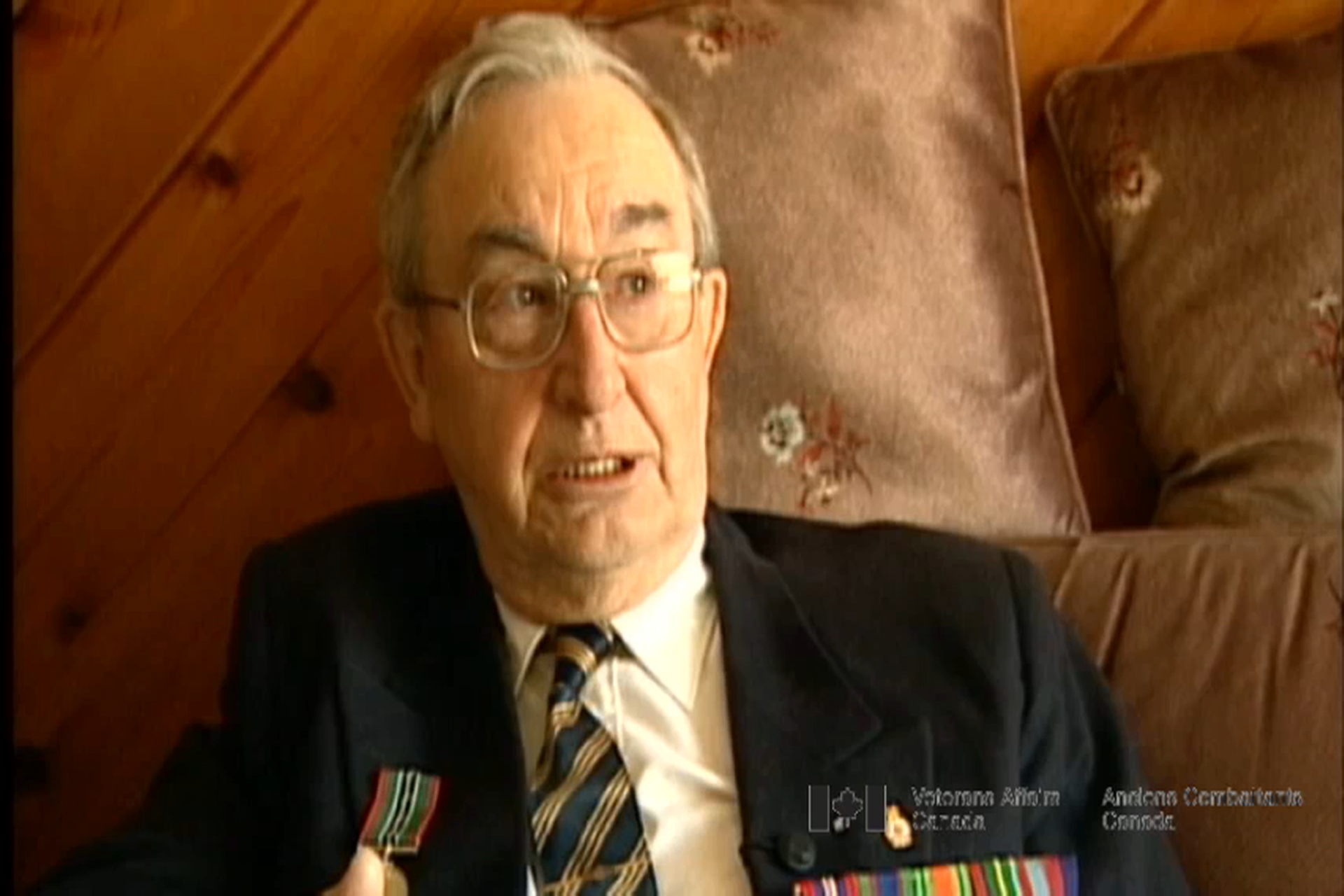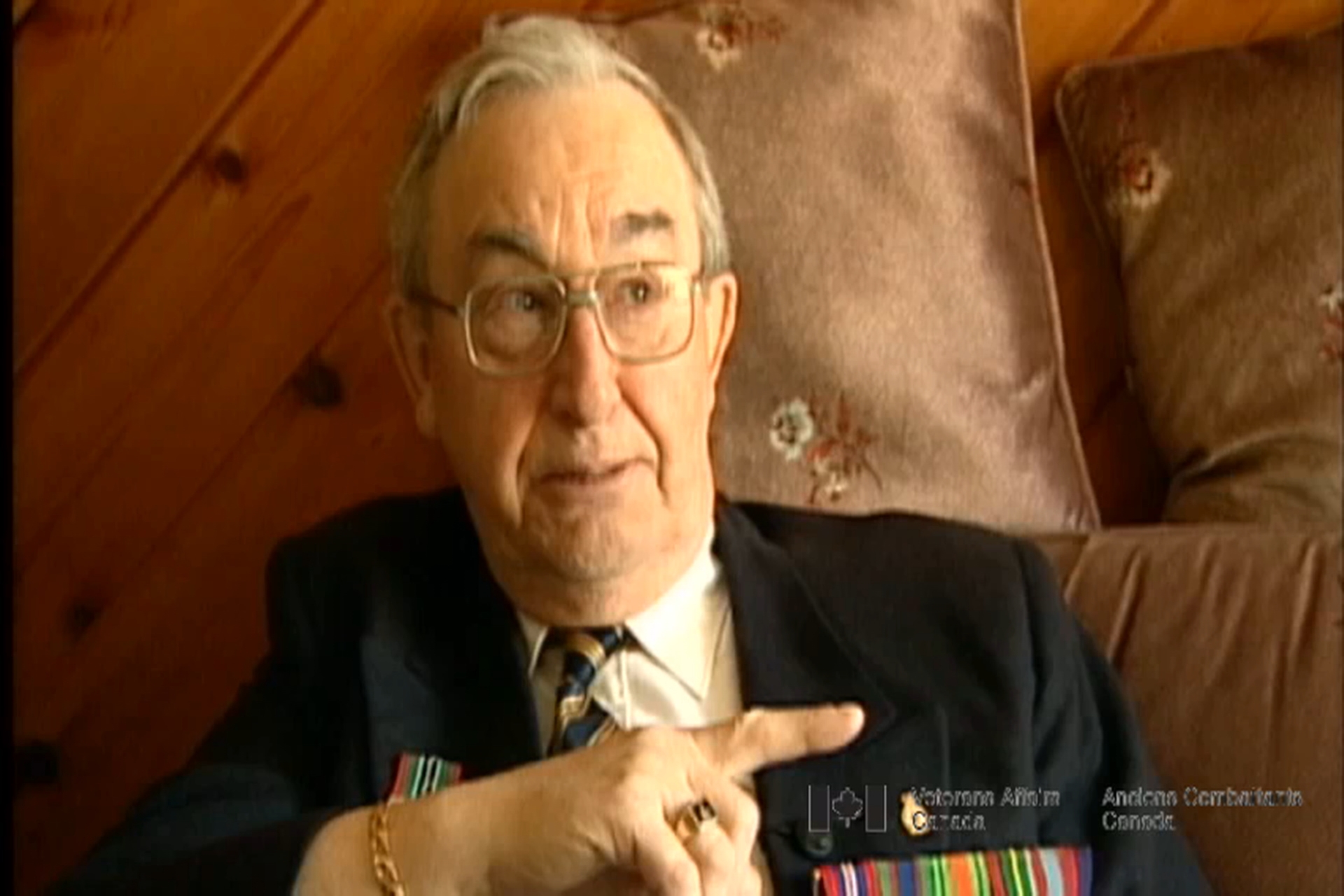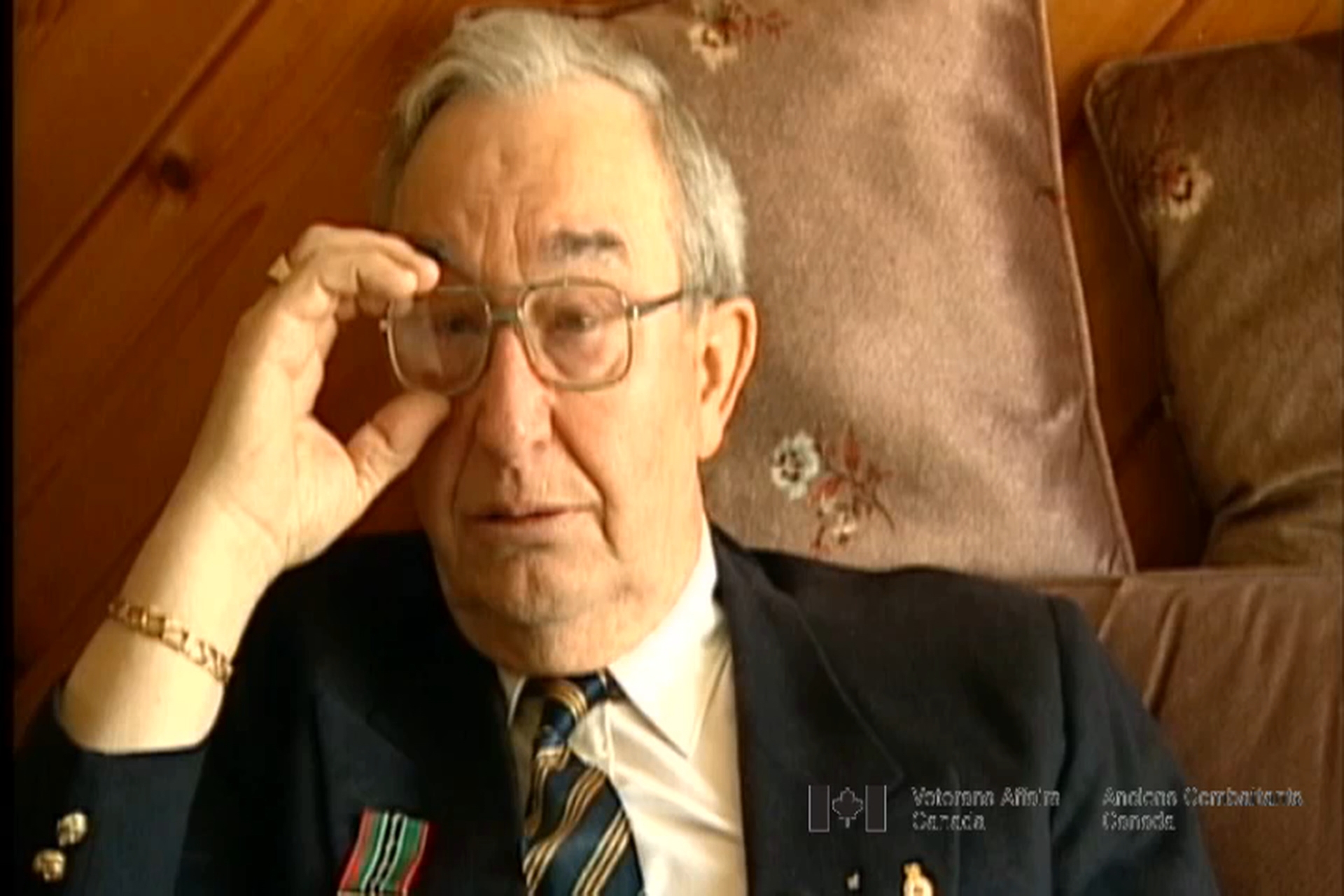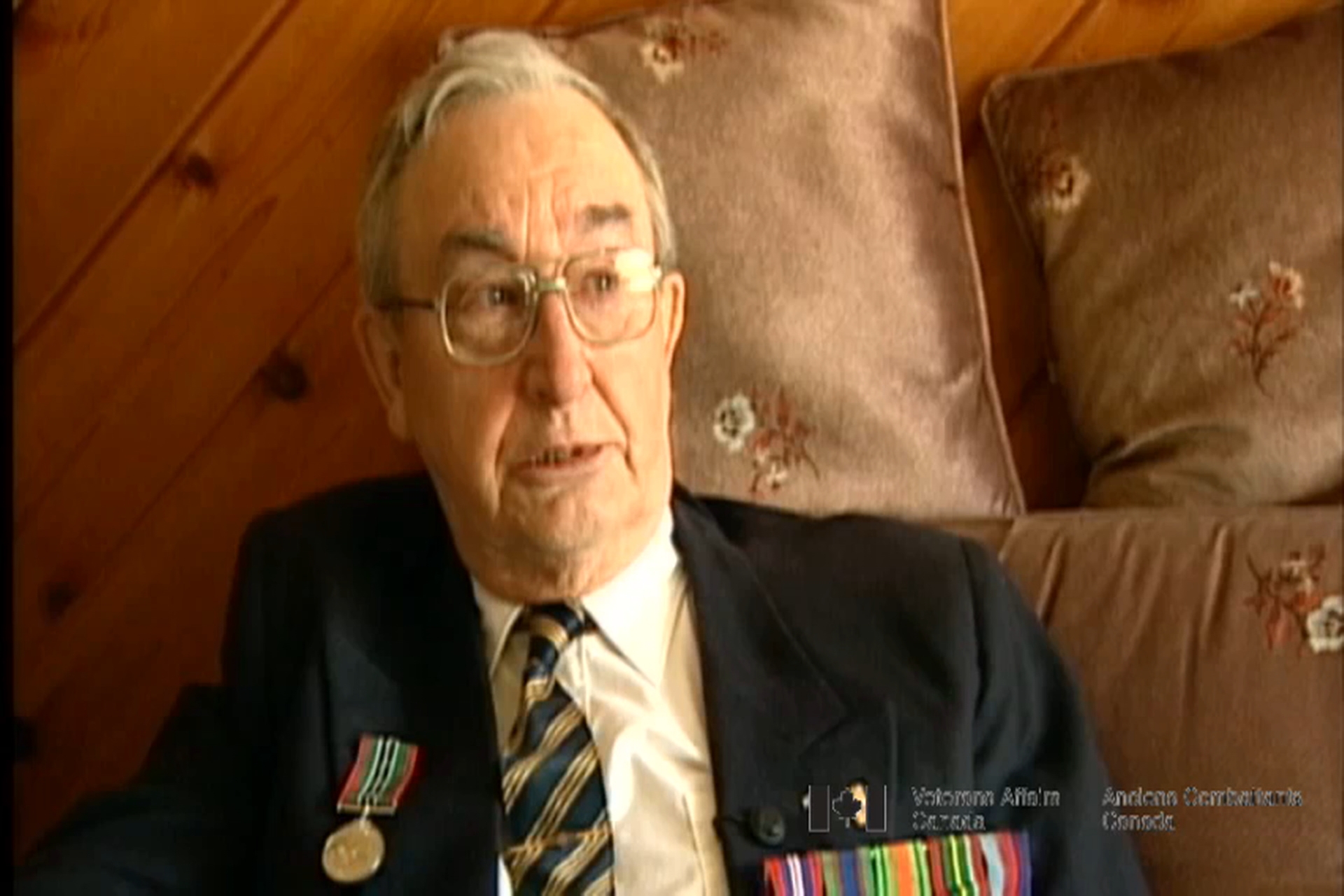It Took Them Quite a While to Find Us
Heroes Remember
It Took Them Quite a While to Find Us
Transcript
Description
Mr. Agerbak describes how a hidden radio informed them the war was over and discusses his voyage home to Canada.
Knud Agerbak
Knud Agerbak was born in Copenhagen, Denmark in 1918. His family of seven emigrated to Canada in 1927, settling in Manitoba where his father worked as a farm labourer. Mr. Agerbak started working on a farm at the age of 13. He then loaded freight for the railroad, and finally worked in a pulp mill. His sense of patriotism led him to enlist the day that war was declared in 1939. He tried to enlist in the PPCLI, but not having reached the age of 21 didn’t have naturalized Canadian status and was turned down. The Winnipeg Grenadiers did , however, accept him. He performed garrison duty in both Bermuda and Jamaica before his deployment to Hong Kong. Hong Kong quickly surrendered, and Mr. Agerbak spent time on labour gangs at KaiTak airport in Hong Kong, and the Yokohama shipyards and northern iron mines in Japan.
Meta Data
- Medium:
- Video
- Owner:
- Veterans Affairs Canada
- Duration:
- 3:32
- Person Interviewed:
- Knud Agerbak
- War, Conflict or Mission:
- Second World War
- Location/Theatre:
- Hong Kong
- Battle/Campaign:
- Hong Kong
- Branch:
- Army
- Units/Ship:
- Winnipeg Grenadiers
- Rank:
- Corporal
- Occupation:
- Section Leader
Related Videos
- Date modified:



